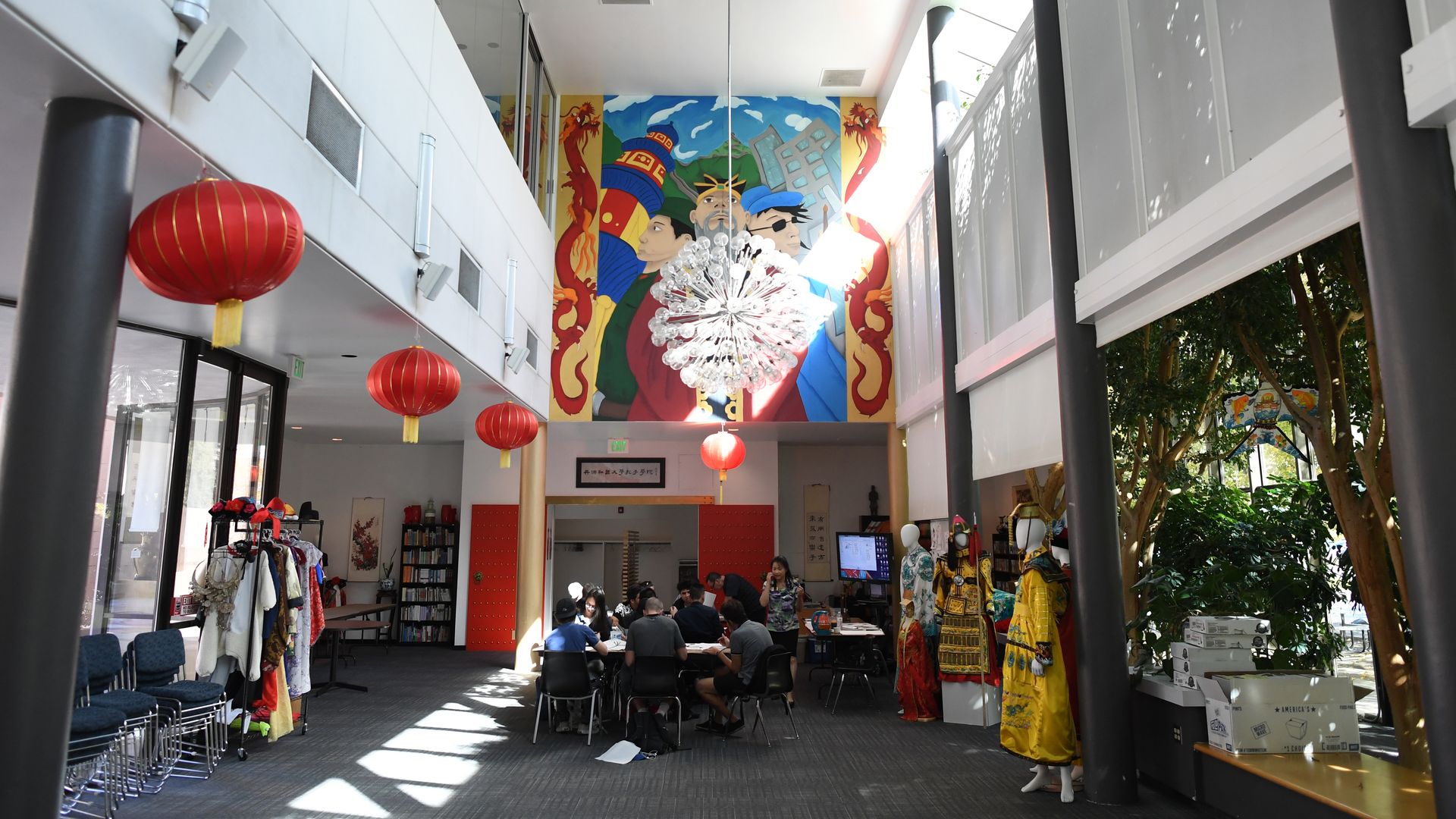China's expanding global influence campaigns are sparking pushback
Add Axios as your preferred source to
see more of our stories on Google.

A class at the Community College of Denver's Confucius Institute. Photo: RJ Sangosti/The Denver Post via Getty Images
China's global influence campaigns are drawing heightened responses, from a bipartisan bill in the U.S. Senate and anti-interference laws in Australia to new legislation in Germany that would limit Chinese investment in media.
Why it matters: Under President Xi Jinping, Beijing has more openly wielded power abroad, trying to influence other countries’ political debates, media coverage and education systems. These efforts extend China's authoritarian control of information, manipulate discussions of its policies and intimidate ethnic Chinese populations around the world.
Details: Beyond the hard power of military and economic coercion, China is expanding its soft power to “sell” an image of itself through its own state media and content-sharing deals with foreign outlets. It also deploys "sharp power" to manipulate other societies, often through misinformation.
- Chinese broadcaster CGTN and newswire Xinhua have opened new foreign bureaus and filled many with journalists from CNN, Al Jazeera, the BBC and other well-regarded outlets. Beijing exerts outsized influence over the international Chinese-language press (including within the U.S.), limiting international scrutiny of China.
- China's propagandistic state news outlets have amassed staggering, if perhaps slightly inflated, numbers of Facebook followers, nearly all of them outside China (where Facebook is blocked).
- Confucius Institutes that offer language and culture training at universities have promoted censorship by blocking conference materials and fostering "formal and informal speech codes" around sensitive issues.
- China's United Front Work Department has expanded and been given a larger global role to suppress criticism and covertly influence ethnic Chinese associations, political parties, campus organizations and other groups.
Where it stands: The gains from China's influence apparatus have so far been mixed. CGTN is only the 10th most popular network in Asia, for example, and has struggled to reach audiences in other regions. But these efforts have sparked backlashes in some states, and its sharp power can end up hurting its soft power.
- FBI Director Christopher Wray has warned universities that China uses cooperation for espionage and has said the FBI is taking "investigative steps" into Confucius Institutes, some of which have already been closed due to reports about censorship.
- China's heavy-handed approach has alienated policymakers and the general public in Australia, Malaysia and elsewhere.
The bottom line: China's influence operations are far-reaching, consequential efforts that merit vigilance, even if they have not all proved as successful as Beijing intended.
Joshua Kurlantzick is senior fellow for Southeast Asia at the Council on Foreign Relations.
